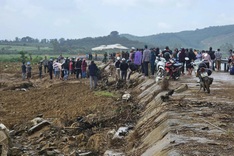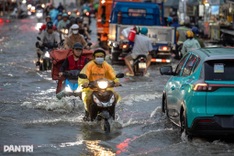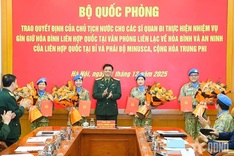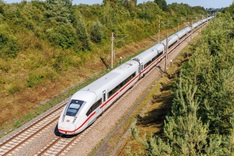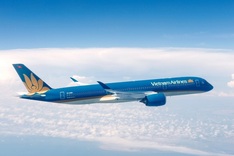The world’s centre of gravity is moving to the Indo-Pacific region, in geo-economic and geo-political terms. Recently, the decision by Australia, the UK and the US to deepen their security and defence ties (the so-called AUKUS group) has certainly triggered a lot of debate on the underlying dynamics in the region and how partners can best respond.

By Josep Borrell, EU High Representative for External Affairs and Vice President of the European Commission.
As the EU, we have a big stake in the future of the region and, we believe, a big contribution to make as well. That is why we published our own Indo Pacific strategy last month. Its central message is that the EU is ready to step up its engagement in and with the region, working on issues where we have long cooperated, such as trade and investment, but also expanding this to areas where there is scope to do more. For example collaborating on shared global challenges like climate action and the digital transition, or on common security challenges like cyber and maritime security.
Why is the EU adopting a new Indo-Pacific strategy now? Amid all the economic dynamism of the Indo-Pacific, we see that the regional order is increasingly challenged, due to growing geo-political competition. We can observe the consequences around the world, but most sharply in this region. As the EU, we have a vital interest that the regional order remains open and rules-based. To that end, we want to enhance cooperation with all Indo-Pacific partners who share our goals.
What do we have in mind? Concretely, we have identified several priority areas where we seek to deepen cooperation in practical terms. Take Connectivity. The EU is and remains a Connectivity super power, in terms of setting standards that are globally relevant and in terms of mobilising finance. We want to build links not dependencies and that is why we favour a sustainable and rules-based approach to connectivity.
A big priority will be our cooperation on global challenges. Climate change is on everyone’s mind. It is an urgent global challenge so we need to join forces to fight, mitigate and adapt to climate change by increasing the level of ambition of our climate action ahead of COP26 in Glasgow. At the same time, we should address broader environmental degradation including plastic pollution and biodiversity loss.
Under the strategy, we have stressed that we want to enhance our digital partnerships, including by working closely together on setting the standards that will shape our digital lives.
We also want to deepen our security engagement including counter-terrorism and cybersecurity, seeking to make that cooperation as concrete as possible. Under the strategy, we commit to an open and rules-based regional security architecture, including secure sea lines of communication, capacity-building and enhanced naval presence by EU Member States. Furthermore, the EU will seek to conduct more joint exercises and port calls with Indo-Pacific partners, including multilateral exercises, to fight piracy and protect freedom of navigation in the region. The EU will also support Indo-Pacific partners' capacity to tackle cybercrime.
In terms of who we want to partner with, the EU’s strategy is inclusive of all our partners wishing to cooperate. Certainly, ASEAN and Vietnam lie at the heart of this crucially important region. Indeed, ASEAN is a strategic partner for the EU and naturally it has a prominent and privileged place in our Indo-Pacific strategy. And Vietnam is an active member of ASEAN and is already connected with the EU through more bilateral agreements than any other ASEAN country, including the Partnership and Cooperation Agreement, the Free Trade Agreement, the Framework Participation Agreement, and the Investment Protection Agreement currently under ratification. In addition, the EU is looking forward to further engaging with Viet Nam on security and defence cooperation by stepping up activities under the project “Enhancing Security Cooperation in and with Asia (ESIWA)” which covers cybersecurity, maritime security and crisis management.
We do also include China in our Indo-Pacific plans. On many areas, such as climate and biodiversity for instance, China’s cooperation is essential. At the same time, we want to deepen our cooperation with democratic, like-minded partners.
In short, the EU’s Indo Pacific strategy is about scaling up and diversifying our political and economic partnerships across the region. With one overall motto: cooperate whenever possible, protect whenever necessary.

